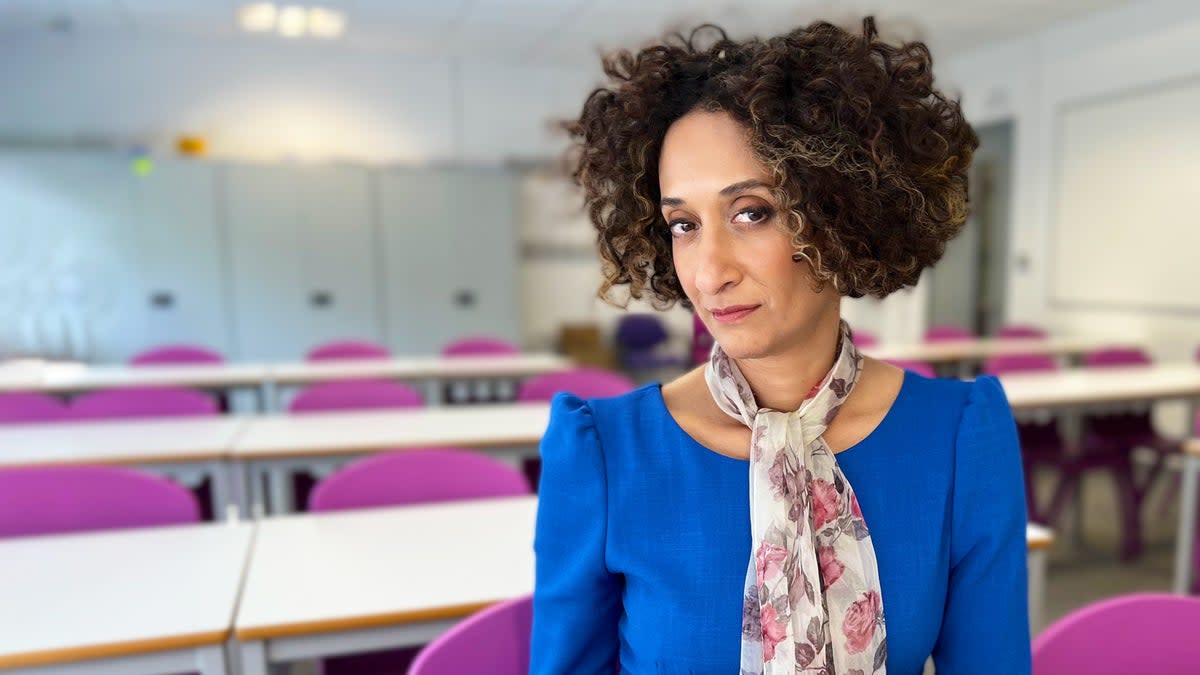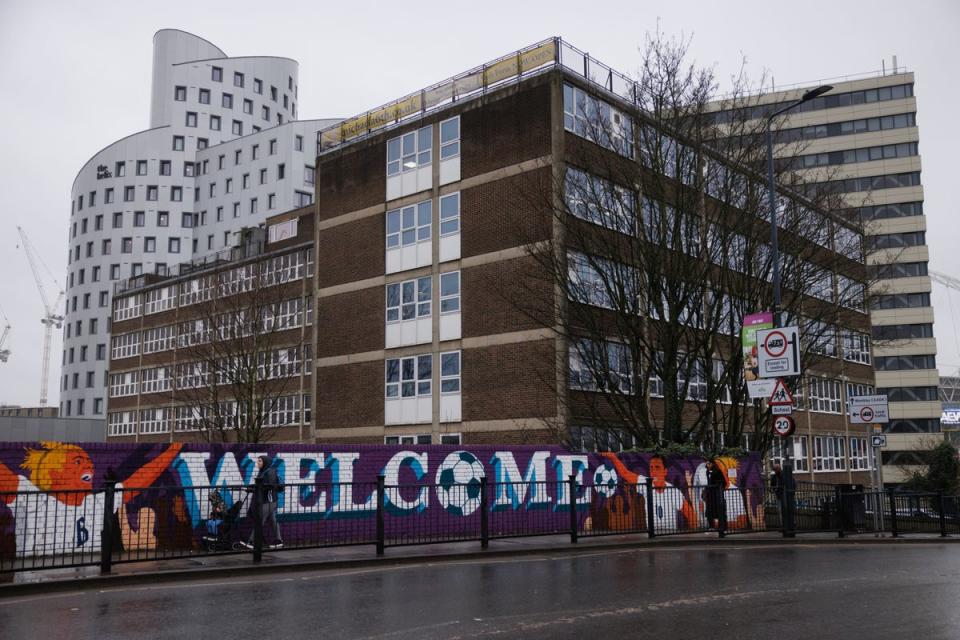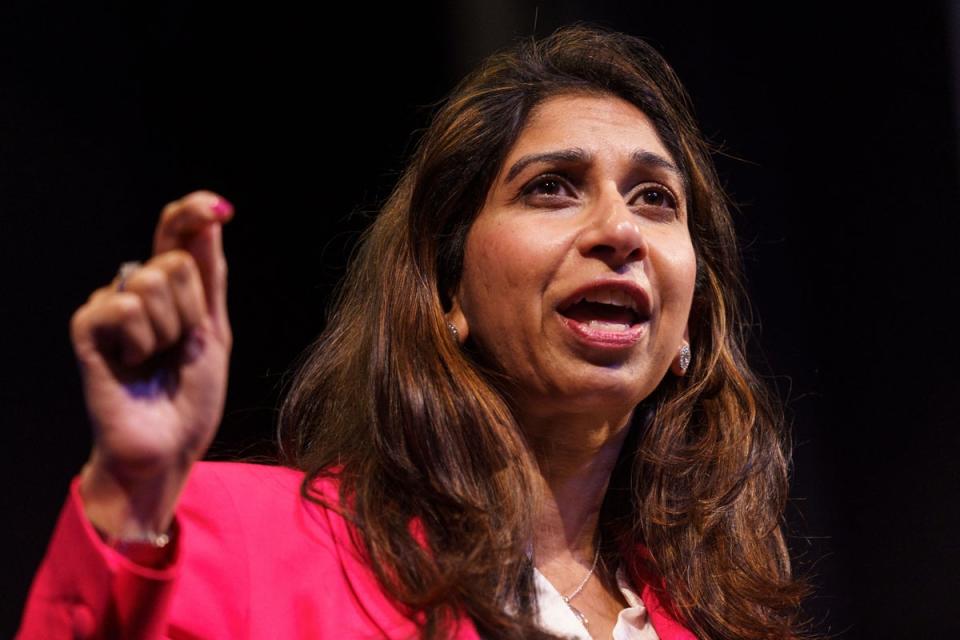Muslim student loses bid to take part in prayer rituals at ‘Britain’s strictest school’

A headteacher famous for her strict discipline has hailed a landmark High Court ruling which backed the school’s right to ban prayer rituals in the playground.
Katharine Birbalsingh, head of Michaela Community School in Brent, north London, said the outcome was a “victory for all schools” after a judge rejected a Muslim’s pupil claim that the policy interfered with her rights to religious freedom.
The pupil, who cannot be named, had claimed that the policy is discriminatory and “uniquely” affects her faith due to its ritualised nature.
But in an 83-page written ruling on Tuesday after a two-day hearing in January, Mr Justice Linden dismissed the pupil’s arguments and backed the school, which had argued its policy was justified after it faced death and bomb threats linked to religious observance on site.
Ms Birbalsingh, a former government social mobility tsar who co-founded the non-faith secondary state school with former home secretary Suella Braverman, said: “A school should be free to do what is right for the pupils it serves. The court’s decision is therefore a victory for all schools.

“Schools should not be forced by one child and her mother to change its approach simply because they have decided they don’t like something at the school,” she added. You can read her statement in full here.
The case will be seen as upholding the right of non-religious schools to make their own decision about whether to set aside time and space for pupils to pray.
Gillian Keegan, the education secretary, said the ruling in the case, which was estimated to cost the taxpayer at least £500,000, should give all school leaders confidence in making the right decision for their school.
Secular campaigners, meanwhile, said the ruling serves as a reminder that claims of religious freedom “do not trump all other considerations”.
The head also suggested that the child’s mother had helped write the statements, even though the woman allegedly intends to send her second child to Michaela as well.

“The judge is clear that the child’s statements were not written by her alone,” said Ms Birbalsingh. “Indeed this mum intends to send her second child to Michaela, starting in September. At the same time, this mum has sent a letter to our lawyers suggesting that she may take us to court yet again over another issue at the school she doesn’t like, presumably once again at the taxpayer’s expense.”
The pupil who brought the legal challenge said in a statement provided by law firm Simpson Millar: “I am obviously very disappointed that the judge did not agree with me,” she said. “As is set out in the judgement, I do not agree that it would be too hard for the school to accommodate pupils who wished to pray in the lunch break.
“Even though I lost, I still feel that I did the right thing in seeking to challenge the ban. I tried my best and was true to myself and my religion.”
The pupil’s mother said she was “profoundly dismayed by the case’s outcome”, claiming that the “case was rooted in the understanding that prayer isn’t just a desirable act for us, it’s an essential element that shapes our lives as Muslims.”

“In our faith, prayer holds undeniable importance, guiding us through each challenge with strength and faith,” she said.
In another statement, headteacher Ms Birbalsingh claimed that Muslim pupils last year had been put under pressure “to pray, to drop out of the choir, to wear a hijab” while teachers faced abuse and intimidation. She said there had been a false narrative peddled that Muslims were the oppressed minority at the school.
“In 2014, 30 per cent of our intake was Muslim. It is now 50 per cent. We are oversubscribed. If our families did not like the school, they would not repeatedly choose to send their children to Michaela,” she wrote on X, formerly Twitter.
The pupil argued that the policy – which forbids her from praying for around five minutes at lunch time, on dates when faith rules required it, but not during lessons – was “the kind of discrimination which makes religious minorities feel alienated from society”.
The pupil’s lawyers previously said the “prayer ban” unlawfully breached her right to religious freedom, adding that it made her feel “like somebody saying they don’t feel like I properly belong here”. The court was told the pupil, referred to only as TTT, is making only a “modest” request to be allowed to pray at lunchtime.
The student also challenged allegedly unfair decisions to temporarily suspend her from school.

Mr Justice Linden, who heard the case at the High Court in London in January, said there was a “a rational connection between the aim of promoting the team ethos of the school, inclusivity, social cohesion etc and the prayer ritual policy”.
He said: “The disadvantage to Muslim pupils at the school caused by the prayer ritual policy is in my view outweighed by the aims which it seeks to promote in the interests of the school community as a whole, including Muslim pupils.”
He also upheld the student's challenge to a decision to temporarily exclude her from the school.
Ms Braverman said: “Michaela has always been a school which prioritises high achievement. And I know how hard Katharine [Birbalsingh] has worked to make it a success right from the early days when I was involved in helping to set up the school as chairman of governors.
“This is a victory for the children and their parents who want them to live happy and fulfilled lives.”
Dan Rosenberg, a lawyer at Simpson Millar, which represented the pupil, said the judge had noted the case raised “issues of genuine public interest in circumstances where the school’s approach has come into conflict with the religious perspective of an important section of society”.
“If a school wishes to uphold a secular ethos, it should be entitled to do so,” said Stephen Evans, chief executive of the National Secular Society. “Schools should be environments where everyone feels welcomed and valued, but that doesn’t mean students have untrammelled religious freedom.
“Where the manifestation of religion is deemed divisive or disruptive, a balance must be struck. We’re pleased the school’s actions have been vindicated.”
The school’s lawyers had claimed that the governors and headteacher at the school of some 700 pupils, about half of whom are Muslim, had “a margin of latitude, discretion or judgement” over its policies.
The court was told that Ms Birbalsingh first introduced the policy in March last year, with it being backed by the governing body in May – allegedly “on the basis of misinformation and errors”.
In March 2023, up to 30 students began praying in the school’s yard, using blazers to kneel on.
Lawyers for the school said students seen praying outside contributed to a “concerted campaign” on social media over the school’s approach to religion.


